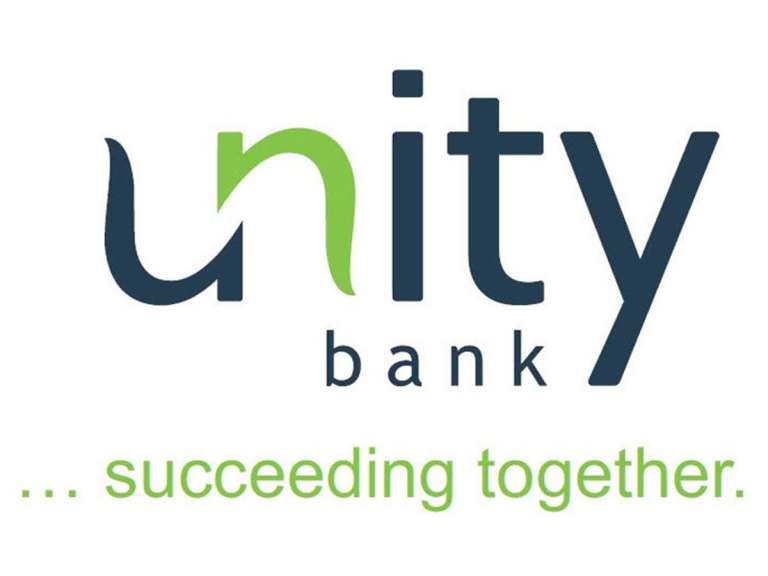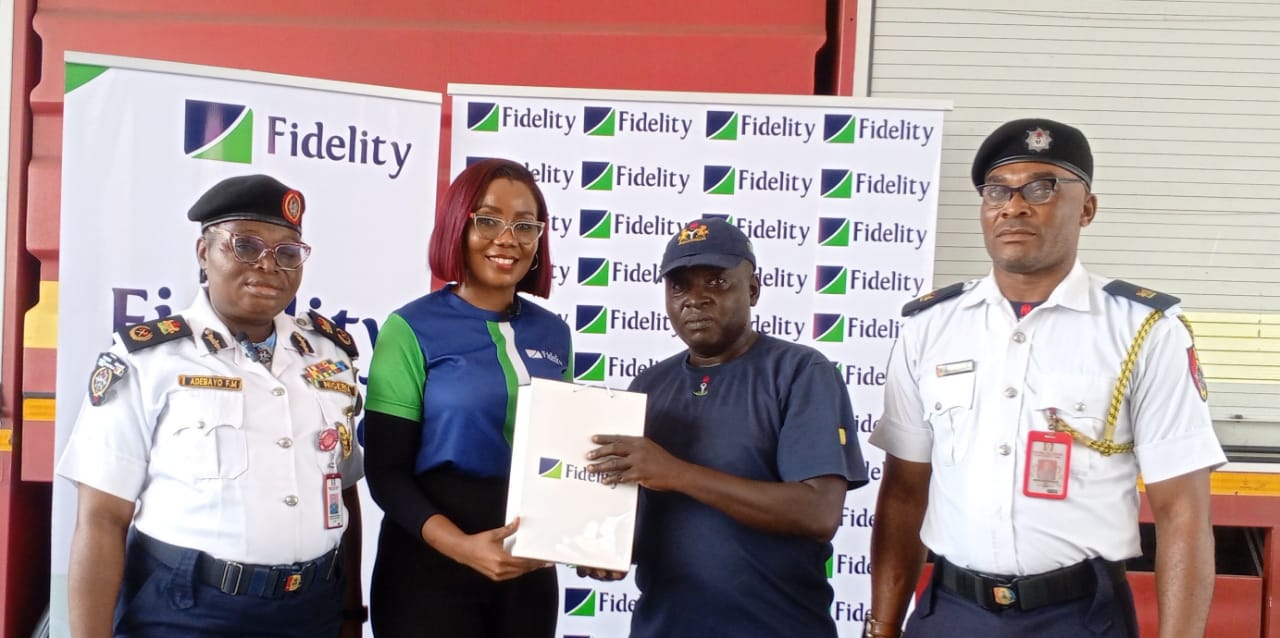Business
Unity Bank’s Gross Earnings Hit N42.71bn in FY 2020, Posts Assets Growth of 67.90% to N492.02bn

Unity Bank Plc grew its assets base to N492.02 billion representing a significant increase of 67.90% from the N293.05 billion of total assets value recorded in 2019. This is even as the agric-focused lender declared gross earnings of N42.71 billion within the period under review.
A review of the Bank’s audited results for full year ended 31 December 2020, released to the Nigerian Stock Exchange, showed that the Bank improved its bottom line marginally as Profit After Tax, PAT stood at N2.09 billion. Profit Before Tax, PBT closed at N2.22 billion, in a year that was defined by the unmitigated impact of global pandemic characterized by disruptions in business activities and general downturn that resulted in revenue/returns dip in major leading sectors globally.
The lender substantially grew its customers’ deposit portfolio to N356.62 billion, up from N257.69 billion in the corresponding period of 2019, representing a 38.4% growth. This affirms positive market uptake of the Bank’s product offerings, as well as the lender’s growing customer base to its recent aggressive push with agile customer-centric products, which has played a role in deepening financial services penetration especially to a wider world, underserved spectrum of the retail market.
Other major highlight of the audited financial statement relates to growth in its net operating income which rose to N25.46 billion from N23.21 billion in the corresponding period of 2019, representing a 9.71% increase. This is even as the net interest income recorded a significant jump, as it rose by 7.60% to N17.75 billion from N16.49 billion in the corresponding period of 2019. Earnings per Share closed at 17.85 Kobo.
The Bank’s gross loans portfolio increased by 92.9% to N206.2 billion in December 2020 from N106.9 billion in December 2019. The Bank’s lending strategy was specially tailored to support the nation’s food agenda. This had the added advantage of improving food security across the country, providing employment to thousands of youths and entrepreneurs, contributing to the conservation of FX stocks and mitigating security challenges by ensuring adequate empowerment of citizens and deepening skills acquisition across the value chain.
Commenting on the result, Unity Bank’s Managing Director/Chief Executive Officer, Mrs. Tomi Somefun stated that the results showed the resilience of the Bank during unprecedented times of uncertainties and our ability to innovate and focus on key balance sheet items that will enable us maintain growth trajectory.
She further opined that: “Consequently, for the year under review, the opportunities to significantly create more quality assets for the business, thought to have sustainable impact, informed part of choices made and we have seen some encouraging market uptake in this regard, apart from the benefits to the enterprise bottom-line that have also started trickling in. Other key performance indicators especially on the liability side of the business was equally not left out. The Bank deployed new product features and augmentation supported by omni-channel, USSD promotions and other channels to enhance services delivery efficiency, drive income generation capacities and enhance steady balance sheet growth for the year”.
Looking ahead, Somefun stated: “we will latch on targeted strategies to deploy significant investment in technology in order to ride the waves of the COVID-19 pandemic. On the back of this, the Bank focus on achieving major efficiency gains, deepening its retail footprints and penetrating identified cluster market segments, as bulwarks to tapping into various youth markets platforms, in addition to the mass market would get further boost”
While laying outlook for the future, the Unity Bank’s Chief further stated:
“The Bank is also looking to consolidate on the gains from its core business areas and niche in the agribusiness sector. The Bank has solidly financed over one million farmers over the past three years. These farmers cut across several primary crop production such as rice, maize, cotton, wheat, sorghum, etc coupled with their rich value chains, and we hope to continue to expand on this as we play our part in driving the country’s quest for self-sufficiency in food production.”
Analysts are of the view that having made appreciable impact in the agribusiness and its value chains consistently, the market is excited that the current year performance and different initiatives of the Bank show that the agribusiness is bankable not only as a differential positioning but also for sustainable business performance and profitability.
Business
FirstBank Launches 500-Seater Bleacher at Carnival Calabar & Festival 2025

West Africa’s premier financial institution and financial inclusion services provider, FirstBank, has officially announced its sponsorship of the Carnival Calabar & Festival 2025, unveiling a landmark addition set to redefine the carnival experience — the first-ever private premium seating area at the event.
The highlight of FirstBank’s participation is the construction of a 500-seater premium bleacher, designed to provide comfort, safety, and an elevated viewing experience for carnival enthusiasts.
Speaking on the sponsorship, the Acting Group Head Marketing and Corporate Communications, FirstBank, Olayinka Ijabiyi, noted that the carnival aligns with the Bank’s First@Arts initiative, a platform dedicated to supporting the creative arts value chain across Nigeria. He said, “We recognise the transformative power of the arts, including carnivals, in inspiring people and strengthening national unity. For more than 131 years, we have supported platforms that promote self-expression, social reflection and cultural exchange. Our investment in the Carnival Calabar & Festival demonstrates our commitment to preserving the nation’s rich cultural heritage through First@Arts.”
“As part of our sponsorship this year, we are introducing the first-ever private 500-seater premium bleacher to further elevate the carnival experience. This exclusive seating is designed to provide exceptional comfort and an unforgettable viewing experience for attendees,” Ijabiyi added.
The Chairman of the Cross River State Carnival Calabar Commission, Gabe Onah, also commented on FirstBank’s sponsorship. “FirstBank’s involvement is a strong demonstration of private-sector support for culture and tourism. This partnership not only enhances the overall quality of the carnival but also strengthens its global appeal,” he said.
The Carnival Calabar & Festival 2025 is officially marketed by Okhma Global Limited, the appointed Official Marketer responsible for brand partnerships, promotional engagements, and ticket sales. Okhma Global Limited has partnered with the Cross River State government in delivering Carnival Calabar & Festival for over ten years, playing a key role in strengthening the carnival’s commercial growth and global visibility.
Business
Yuletide: Ecobank Urges Vigilance, Guarantees Seamless Banking

Ecobank Nigeria, a member of Africa’s leading pan-African banking group, has assured customers of uninterrupted access to banking services throughout the year-end holiday period via its secure and robust digital platforms. The Bank also urged customers to remain vigilant against fraud and scams during the festive season.
Speaking on the development, Victor Yalokwu, Head, Products & Analytics, Consumer & Commercial Banking, Ecobank Nigeria, said the Bank’s digital channels — including the Ecobank Mobile App, Ecobank Business App, USSD *326#, Ecobank Online, OmniPlus, Omnilite, EcobankPay, RapidTransfer, Ecobank Cards, ATMs, PoS terminals, and over 35,000 Ecobank Xpress Point (Agent Banking) locations nationwide — will remain fully available to support customers throughout the yuletide and year-end holiday period.
He noted that customers will continue to enjoy a wide range of services during the period, including local and international funds transfers, bill payments and airtime top-ups, merchant payments, balance inquiries and account statements, as well as cardless cash withdrawals via ATMs.
According to Yalokwu, “Ecobank encourages customers to leverage these digital solutions for safe, fast, and efficient banking, especially during the festive season when convenience and reliability are essential. While physical branch operations may be subject to adjusted working hours in line with public holidays, customers can be assured that Ecobank’s digital platforms are designed to deliver uninterrupted service and enhanced security at all times. Ecobank remains committed to providing innovative financial solutions and exceptional customer service, and we wish all our customers a joyful festive season and a prosperous New Year.”
Yalokwu also cautioned customers to remain vigilant against fraudsters and scammers during the period. “Before you wrap up the year, tighten your security. December brings online sales, travel, and year-end distractions—this is exactly when scammers are most active. From fake festive deals to cloned merchant sites and suspicious messages, staying vigilant helps keep your money safe.”
He advised customers to shop only on trusted websites, never share their PINs, passwords, or one-time passwords (OTPs), avoid banking on public Wi-Fi networks, be cautious of urgent or emotionally charged messages, and regularly review their account activity.
Business
Fidelity Bank Donates Hoses, Water Pumps to Fire Service

Fidelity Bank Plc has donated firefighting and preventive equipment, including hoses and gasoline-powered water pumps, to the Ikoyi Fire Service Station in Lagos, reinforcing efforts to improve emergency response and promote community safety.
The donation was executed under the Fidelity Helping Hands Programme (FHHP) by the bank’s True Serve team. Through the initiative, Fidelity Bank employees identify critical community needs, raise funds, and receive matching financial support from the bank to implement impact-driven projects.
Speaking on the initiative, Divisional Head, Brand and Communications Division at Fidelity Bank, Dr Meksley Nwagboh, said the intervention reflects the bank’s commitment to public safety, environmental protection, and sustainable community development.
“Community safety is a shared responsibility. Fidelity Bank remains committed to supporting initiatives that protect lives, property, and the environment,” Nwagboh said, adding that preventive measures remain more effective than emergency responses.
He noted that providing the right tools to first responders aligns with the bank’s broader goal of enabling people to live safe, meaningful, and empowered lives.
Lagos State Controller of the Federal Fire Service, Controller of Fire (CF) Funke Adebayo, commended Fidelity Bank for the timely support, particularly as the festive season approaches amid dry weather conditions that heighten fire risks.
She urged residents to remain vigilant and warned parents against allowing children to handle fireworks during celebrations, stressing that careless handling of fire could lead to avoidable disasters.
Adebayo also disclosed that the Fire Service has intensified sensitisation visits to corporate organisations to promote fire safety and discourage unsafe practices.
Also speaking, Area Commander, Onikan Fire Station, Chief Superintendent of Fire (CSF) Oswere Michael, expressed appreciation for the donation, noting that it would strengthen the station’s operational capacity.
He encouraged households, businesses, and community members to prioritise fire safety, describing collective responsibility as critical to preventing fire outbreaks.
Fidelity Bank Plc is a full-fledged commercial deposit money bank serving over 9.1 million customers through its digital platforms, 255 business offices across Nigeria, and its UK subsidiary, FidBank UK Limited. The bank has received multiple local and international awards in recognition of its performance in digital transformation, MSME banking, and innovative financial services.
Photo – L-R: Lagos State Controller, Federal Fire Service, CF (Controller of Fire), Adebayo Funke; Tolulope Rojaiye, Marketing Business Partner, Fidelity Bank Plc; Assistant Superintendent of Fire, Ishola Folorunsho Olufemi; and Station Commander, Onikan Fire Station, Lagos, Okeke Ferdinand; during the donation of firefighting equipment to the Federal Fire Service at Ikoyi, Lagos, recently.






